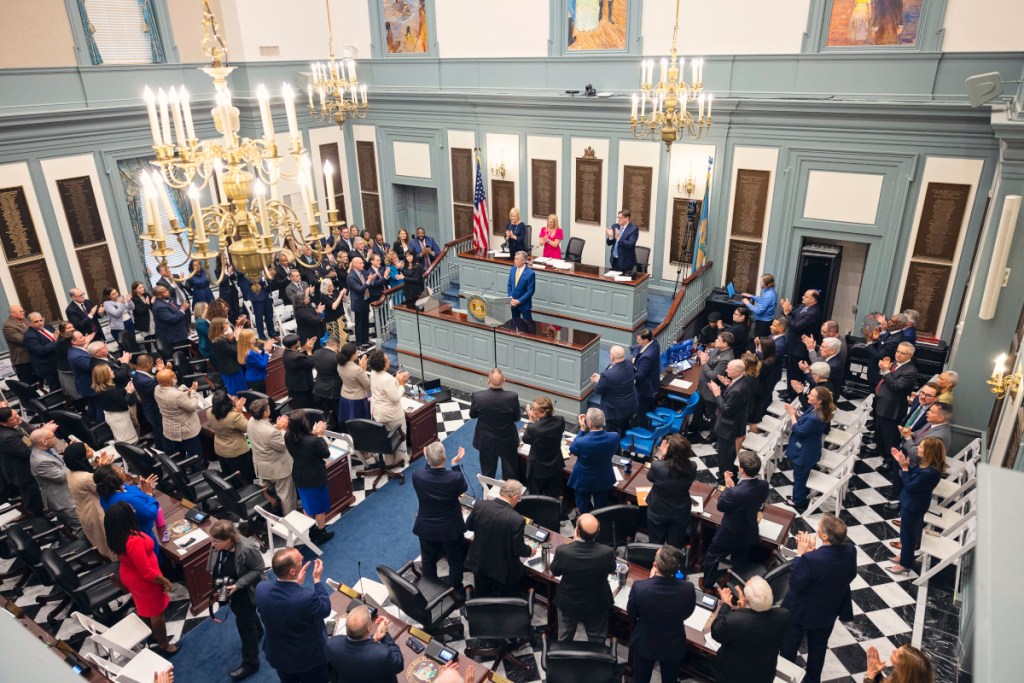
Why should Delaware Care?
A 1997 error in Delaware’s pension system led to boosted payouts for retired lawmakers last year, costing nearly $1 million in retroactive payments and raising questions among elected officials. But the state is now working to fix the error, a change that would help preserve pension funds but also reduce payments for future retirees.
Eight months after the former Carney administration decided to boost legislators’ pension payments as a result of a 28-year-old legal error in the Delaware Code, the state is now working to rectify that error, which would lower payments for future retired legislators.
The Delaware Compensation Commission, which is tasked with making salary recommendations for judges, lawmakers and other government officials, turned in their recommendations Tuesday with the start of the 153rd General Assembly.
Among their recommendations was a motion to properly revise the Delaware legal code, so that lawmakers’ pension payments are no longer tied to the highest compensated lawmaker, and are instead tied to their own salaries.
The issue regarding Delaware lawmakers’ pension calculations came up early last year after it was discovered that a 1997 legislative change had not been correctly codified into state law.
In 1997, the Compensation Commission recommended that the General Assembly adjust the calculation of retired lawmakers’ payouts to tie them directly to their own salaries.
Prior to the recommendation, lawmakers’ pension payouts were determined by multiplying an individual’s years of service by the salary of the highest-paid retired legislator.
The proposal ultimately became law, but it bypassed the traditional legislative process, where a bill is reviewed and approved by the General Assembly before being signed into law by the governor.
Both chambers in the General Assembly never considered the proposal or voted it down, which they must do, otherwise, it “shall take effect and have the force and effect of law,” according to the Delaware Code.
Although Delaware’s pension office adopted the more standardized system, where lawmakers’ payments were based on a percentage of their own highest years’ earnings, the commission’s recommendation was never officially codified into law due to a clerical oversight that left it out.
Last March, the Carney administration recognized the error and addressed the situation by reverting to the pre-1997 rules. Retired legislators received letters from Delaware Pension Administrator Joanna Adams that outlined a forthcoming boost in their monthly pension payments.
The letter stated that the change was happening because Delaware’s legal code “was never updated” following the apparent passage of a law in 1997 that altered how legislative pensions were calculated.
The issue raised concerns among legislators, as members of the General Assembly were not notified about the policy change and the hit to state pension funds.
Legislative pensions are funded through the Delaware Public Employees Retirement System, which manages and invests contributions from state government workers.
While the large payments to retired legislators wouldn’t directly impact taxpayers, it would reduce the investable funds available for other state pensioners.
This decision resulted in lawmakers receiving pay increases totaling $900,000 in retroactive payments and a $13,000 increase in monthly pension payroll.
As of December, the State Employee Pension Fund holds a value of $11 billion.
Michael Barlow, chairman of the Delaware Compensation Commission, said legislative leadership from both chambers and both parties requested that the commission re-examine the 1997 recommendations.
“We thought the fact that this was recommended in 1997 was important to us, and that it was a thoughtful recommendation that ensures state legislators’ pensions are calculated in the same manner as other state employees,” he said.
If enacted, the state code would maintain the current system of tying pensions for existing and retired lawmakers to the highest-paid retiring lawmaker. However, for those elected on or after Jan. 1, 2025, pensions would instead be calculated monthly based on their individual earnings and years of service.
With the recent retirement of Rep. Peter Schwartzkopf (D-Rehoboth Beach), who served for a decade as Speaker of the House, retired lawmakers are expected to receive another payment boost.
Unless the General Assembly rejects the commission’s new recommendations before July 1, they will take effect as law.
The post Delaware moves to correct decades-old legislative pension error appeared first on Spotlight Delaware.
